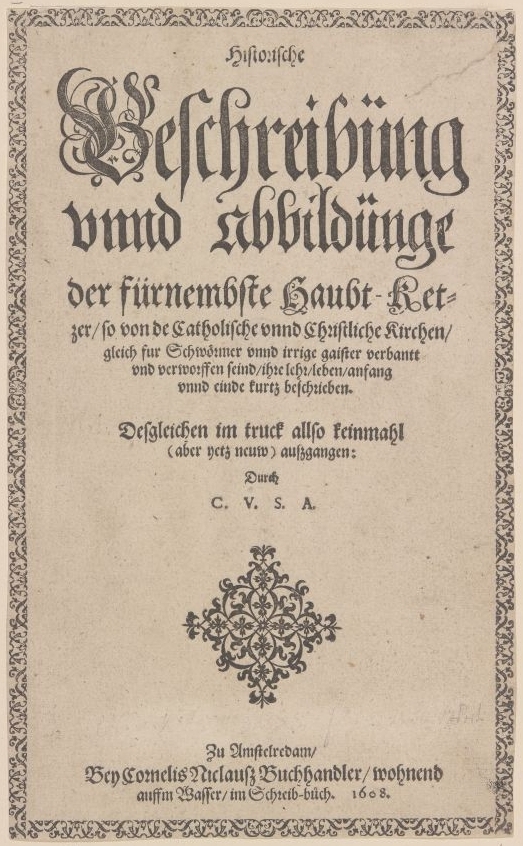Source

Source: Historische Beschreibung und abbildünge der fürnembste Haubt-Ketzer, woodcuts by Christoffel van Sichem, Amsterdam, 1608. Herzog Anton Ulrich Museum, https://nds.museum-digital.de/object/34924
Early modern European religious divisions extended beyond the conflicts between Reformation Era confessional controversies and violence. Early modern Christians articulated varying opinions about Islam and Muslims, often in openly hostile and racist terms. Both Luther and Erasmus wrote about Islam, frequently portraying Ottoman Turks as a punishment against ungodly Christians. This text, which accompanied an engraving by Dutch artist and publisher Christoffel von Sichem, is taken from a popular illustrated work on the “main heretics” of its day. First produced as a series of woodcuts, it was later expanded with text and published in Dutch in Amsterdam in 1608, and throughout the mid-seventeenth century in German, Latin, and English. Here, the author describes Machometh (Muhammad) as a Christian heretic, a common description used as a way to attack contemporary heretics. The description, blatantly shaped by prejudice, illustrates the long history of anti-Islam sentiment in Europe.

Source: Historische Beschreibung und abbildünge der fürnembste Haubt-Ketzer, woodcuts by Christoffel van Sichem, Amsterdam, 1608. Herzog Anton Ulrich Museum, https://nds.museum-digital.de/object/34924
Herzog Anton Ulrich Museum
Christian-Muslim Relations. A Bibliographical History. Volume 8. Northern and Eastern Europe (1600-1700), Edited by David Thomas and John A. Chesworth (Brill, 2016).
Erasmus: Desiderius Erasmus of Rotterdam, On War against the Turks (De bello turcico), 1530. from Erika Rummel, ed. The Erasmus Reader (Toronto: University of Toronto Press, 1990), 315-333.
Luther: On War Against the Turks 1529, Excerpted from American Edition of Luther’s Works, vol. 46 Christian in Society, translated by Charles M. Jacobs, ed. Robert Schultz (Philadelphia: Fortress Press: 1967), 155-205.
Gary K. Waite, Jews and Muslims in Seventeenth-Century Discourse: from Religious Enemies to Allies and Friends. London: Routledge Taylor and Francis Group, 2019.